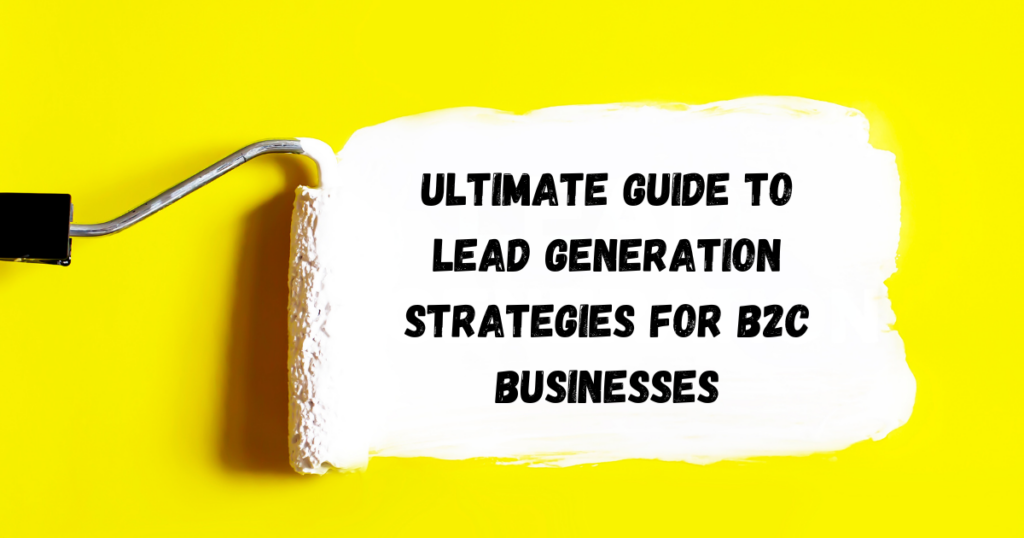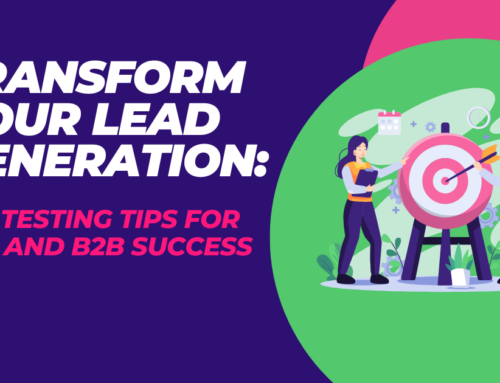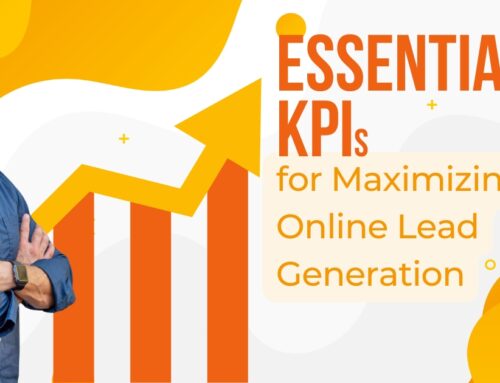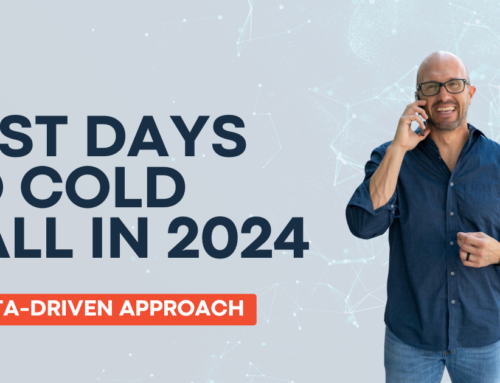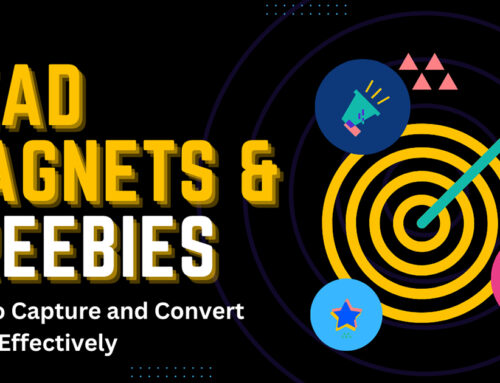Introduction
Understanding Lead Generation in B2C
Definition and Importance
Lead generation is the process of attracting and converting strangers and prospects into someone who has indicated interest in your company's product or service. For B2C (Business-to-Consumer) businesses, lead generation is crucial as it directly impacts sales and revenue. By effectively generating leads, businesses can cultivate relationships with potential customers, nurture them through the buying process, and convert them into loyal customers.
Current Trends in B2C Lead Generation
The landscape of B2C lead generation is continuously evolving with technological advancements and changing consumer behavior. Current trends include the use of AI and machine learning for predictive analytics, personalized marketing strategies, and the integration of omnichannel approaches to engage customers across various touchpoints.
Why Lead Generation is Crucial for B2C Businesses
The Role of Leads in Business Growth
From Leads to Loyal Customers
Leads are the lifeblood of any business. They are potential customers who have shown interest in what you offer and can be nurtured into loyal customers. Effective lead generation strategies help build a pipeline of potential clients who can be converted into repeat customers, thereby increasing the lifetime value of each customer.
The Financial Impact of Effective Lead Generation
Effective lead generation has a significant financial impact on businesses. It not only helps in reducing customer acquisition costs but also boosts revenue by driving more sales. High-quality leads lead to higher conversion rates, ensuring that marketing efforts yield substantial returns on investment.
Top 10 Lead Generation Strategies for B2C Businesses
Content Marketing
Creating Valuable Content
Content marketing involves creating and sharing valuable, relevant content to attract and engage a clearly defined audience. High-quality content such as blog posts, articles, and videos can address the pain points of your target audience, establishing your brand as a thought leader and building trust.
Using Blogs, Videos, and Infographics
Different types of content can be used to capture leads effectively. Blogs provide in-depth information, videos engage visually, and infographics present data in an easily digestible format. By leveraging a mix of these content types, businesses can cater to diverse audience preferences and enhance their lead generation efforts.
Social Media Marketing
Engaging with Your Audience on Different Platforms
Social media platforms like Facebook, Instagram, TikTok, X, and LinkedIn are powerful tools for B2C lead generation. Engaging with your audience through regular posts, stories, and interactive content helps build a community around your brand and encourages potential customers to take action.
Leveraging Influencers and Brand Ambassadors
Collaborating with influencers and brand ambassadors can amplify your reach and credibility. These individuals have established trust with their followers, and their endorsement can drive traffic and leads to your business. Select influencers whose audience aligns with your target market for maximum impact.
Email Marketing
Building an Effective Email List
An effective email list is crucial for successful email marketing campaigns. Use lead magnets like eBooks, whitepapers, and discounts to encourage website visitors to subscribe to your email list. Ensure that your emails comply with privacy laws and provide value to your subscribers.
Crafting Compelling Email Campaigns
Email campaigns should be personalized, relevant, and timely. Craft compelling subject lines, provide valuable content, and include clear calls-to-action (CTAs) to encourage recipients to take the next step. Use segmentation to tailor your messages to different audience segments.
Search Engine Optimization (SEO)
On-Page SEO Techniques
On-page SEO involves optimizing individual web pages to rank higher in search engine results. This includes using relevant keywords, optimizing meta tags, headers, and content, and ensuring a fast and mobile-friendly website. Effective on-page SEO can drive organic traffic and generate high-quality leads.
Off-Page SEO Strategies
Off-page SEO focuses on activities outside your website that influence your rankings. This includes building backlinks from reputable websites, social media engagement, and online reputation management. A robust off-page SEO strategy enhances your online visibility and attracts potential leads.
Pay-Per-Click (PPC) Advertising
Setting Up PPC Campaigns
PPC advertising allows businesses to bid for ad placement in search engine results. Set up PPC campaigns by selecting relevant keywords, creating compelling ad copy, and targeting specific demographics. PPC can provide immediate visibility and drive traffic to your website.
Optimizing Ad Spend for Maximum ROI
Optimize your ad spend by continuously monitoring and adjusting your PPC campaigns. Use A/B testing to determine the most effective ad copy, creative, keywords, and targeting options. Focus on high-performing ads and allocate your budget to maximize return on investment (ROI).
Lead Magnets and Freebies
Offering Ebooks, Whitepapers, and Discounts
Lead magnets are incentives offered to potential customers in exchange for their contact information. Ebooks, whitepapers, and discounts are popular lead magnets that provide value and encourage visitors to share their details. Ensure your lead magnets are relevant and high-quality.
Using Quizzes and Surveys to Capture Leads
Interactive content like quizzes and surveys can be engaging and informative. They not only capture leads but also provide valuable insights into your audience's preferences and behaviors. Use the collected data to personalize your marketing efforts and improve lead generation.
Webinars and Live Events
Hosting Informative Webinars
Webinars are an excellent way to educate your audience and showcase your expertise. Hosting informative webinars on topics relevant to your industry can attract potential leads. Promote your webinars through various channels and provide opportunities for attendees to engage and ask questions.
Engaging with Attendees in Real-Time
Engaging with webinar attendees in real-time through Q&A sessions, polls, and interactive discussions can create a more personalized experience. Follow up with attendees after the event to nurture leads and move them further down the sales funnel.
Referral Programs
Encouraging Word-of-Mouth Marketing
Referral programs leverage the power of word-of-mouth marketing by encouraging existing customers to refer new ones. Offer incentives such as discounts, freebies, or loyalty points to customers who refer others to your business. Satisfied customers can become your brand advocates and generate high-quality leads.
Creating Incentives for Referrals
Design a referral program that is easy to understand and participate in. Clearly communicate the benefits of referring others and provide a seamless process for customers to make referrals. Track and reward successful referrals to maintain motivation and engagement.
Partnerships and Collaborations
Partnering with Complementary Brands
Partnering with complementary brands can expand your reach and introduce your business to new audiences. Look for businesses that share your target market but offer different products or services. Collaborative marketing efforts can generate leads and provide mutual benefits.
Joint Ventures for Broader Reach
Joint ventures involve more extensive collaboration between businesses. By pooling resources and expertise, joint ventures can create more impactful marketing campaigns and reach a broader audience. Ensure that both parties benefit equally and have clear goals for the partnership.
Using CRM Tools
Managing Leads Efficiently
Customer Relationship Management (CRM) tools help businesses manage leads efficiently by organizing and tracking interactions with potential customers. A CRM system can streamline lead management processes, ensuring that no leads fall through the cracks.
Automating Follow-Ups and Nurturing Leads
Automation features in CRM tools can handle repetitive tasks like follow-up emails and lead nurturing. Set up automated workflows to engage with leads at different stages of the buyer journey, providing personalized content and offers to move them closer to conversion.
Measuring the Success of Your Lead Generation Efforts
Key Performance Indicators (KPIs) to Track
Conversion Rates
Conversion rates measure the percentage of leads that take the desired action, such as making a purchase or signing up for a service. Tracking conversion rates helps you understand the effectiveness of your lead generation strategies and identify areas for improvement.
Customer Acquisition Costs
Customer acquisition cost (CAC) is the total cost of acquiring a new customer. By calculating CAC, you can assess the efficiency of your lead generation efforts and determine the most cost-effective strategies. Aim to reduce CAC while maintaining or increasing lead quality.
Analyzing and Adjusting Your Strategies
A/B Testing and Continuous Improvement
A/B testing involves comparing two versions of a marketing asset to determine which performs better. Regularly conduct A/B tests on your lead generation tactics, such as email campaigns, landing pages, and ads. Use the results to refine your strategies and achieve better outcomes.
Common Challenges in B2C Lead Generation
Generating High-Quality Leads
Avoiding Common Pitfalls
One of the main challenges in B2C lead generation is generating high-quality leads that are genuinely interested in your products or services. Avoid common pitfalls such as targeting too broad an audience, neglecting lead nurturing, and failing to provide clear value propositions.
Balancing Quantity and Quality
Ensuring Consistent Lead Flow
Balancing the quantity and quality of leads is crucial for sustainable growth. Focus on attracting a steady stream of high-quality leads by refining your targeting, optimizing your content, and continuously engaging with your audience. Consistent lead flow ensures a healthy sales pipeline.
Future Trends in B2C Lead Generation
The Rise of AI and Automation
Using AI to Improve Lead Scoring
Artificial intelligence (AI) and automation are transforming lead generation. AI can analyze vast amounts of data to identify high-potential leads and predict their likelihood to convert. Implementing AI-driven lead scoring systems can help prioritize efforts and improve conversion rates.
Personalization and Customer Experience
Tailoring Content and Offers to Individual Preferences
Personalization is becoming increasingly important in B2C lead generation. Tailoring content and offers to individual preferences enhances the customer experience and increases engagement. Use data-driven insights to deliver personalized messages and create meaningful interactions with your audience.
Conclusion
Recap of Top Strategies
In this guide, we've explored the top 10 lead generation strategies for B2C businesses, including content marketing, social media marketing, email marketing, SEO, PPC advertising, lead magnets, webinars, referral programs, partnerships, and CRM tools. Each strategy offers unique benefits and can be tailored to fit your business needs.
Importance of Continuous Optimization
Lead generation is not a one-time effort but a continuous process that requires ongoing optimization. Regularly analyze your performance, conduct A/B tests, and adjust your strategies to stay ahead of the competition and meet evolving customer expectations.
Final Thoughts on Achieving Success in B2C Lead Generation
Successful B2C lead generation requires a holistic approach that combines various strategies to attract, engage, and convert leads. By understanding your audience, delivering value, and leveraging the latest trends and technologies, you can build a robust lead generation system that drives business growth and profitability.
Unlock Your Path to Entrepreneurial Success!
Are you ready to take your business ideas to the next level? Our Ultimate Entrepreneur Starter-Kit provides a comprehensive guide to help you build and scale your business effectively. With actionable insights, proven strategies, and practical tips, this starter kit is your essential companion for entrepreneurial success.
Don't miss out on this exclusive opportunity to elevate your business!
Download Your Free Ultimate Entrepreneur Starter-Kit Now!
Click the button below to access your FREE Ultimate Entrepreneur Starter-Kit and start your journey towards business success today.
FAQs
Q1: What is the most effective lead generation strategy for B2C businesses?
A1: The most effective strategy varies by industry, but content marketing, social media engagement, and email marketing are universally powerful.
Q2: How can B2C businesses improve their lead conversion rates?
A2: Improving lead conversion rates involves optimizing landing pages, personalizing follow-up communications, and offering clear value propositions.
Q3: What role does SEO play in B2C lead generation?
A3: SEO enhances online visibility, driving organic traffic to your website, which can be converted into leads through optimized content and calls-to-action.
Q4: How can small businesses generate leads without a large budget?
A4: Small businesses can focus on organic strategies like content marketing, social media engagement, and leveraging local SEO to attract leads.
Q5: What are the future trends in B2C lead generation?
A5: Future trends include greater use of AI and automation, increased personalization, and enhanced customer experience management.

